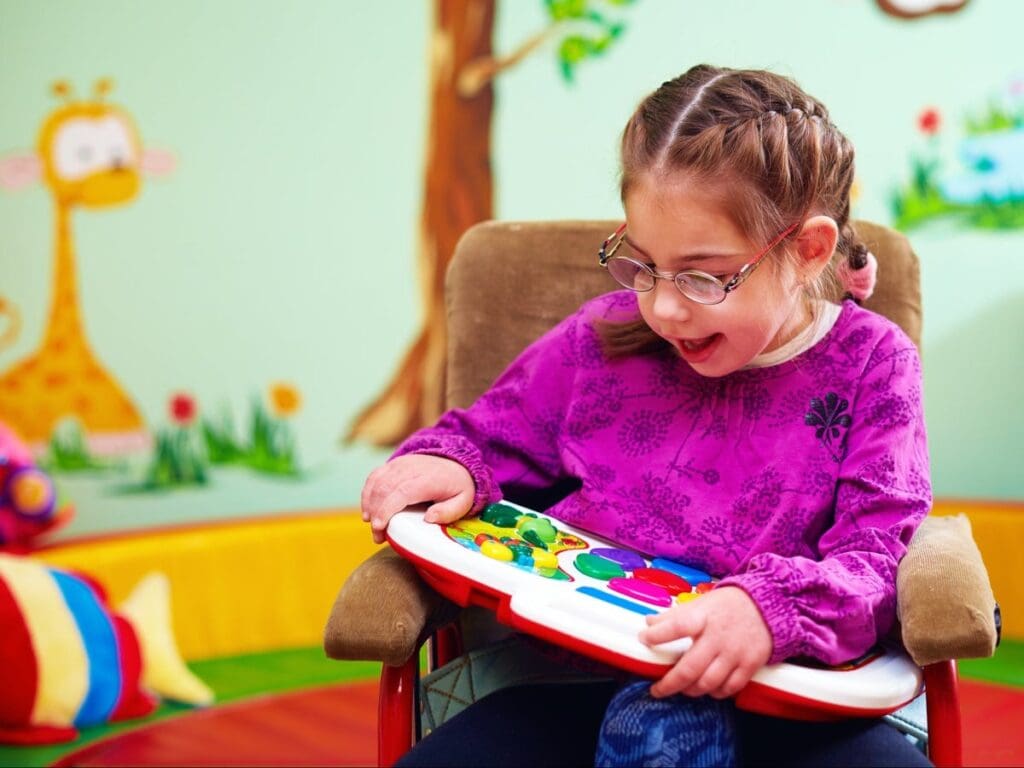Last Updated on November 17, 2025 by

Developmental delays are common among children worldwide. The CDC says about 1 in 6 kids in the U.S. face at least one developmental delay. This shows how vital early help is for these kids.
Developmental delays can change a child’s life a lot. They affect school work and social and emotional growth. Early help is key to help kids catch up and reach their goals.
New studies show that special therapies help kids with developmental delays a lot. Knowing how common these delays are and what helps can unite parents, teachers, and doctors. Together, they can offer the right support.
Developmental delays happen when kids don’t meet certain milestones on time. Early help is key to catch up.

A delay happens when a child misses certain milestones. These can be physical, cognitive, or emotional. They’re expected to reach these by certain ages.
For example, cognitive delays might show up as trouble solving problems or remembering things. Physical delays could be seen in not mastering basic movements like walking. Knowing these areas helps figure out what kind of delay a child has.
Delays can show up in different ways, like:
Some kids might only have one area affected. Others might face global developmental delays, impacting many areas.
“Early intervention services can significantly improve outcomes for children with developmental delays.”
Spotting delays means watching a child’s growth and comparing it to milestones. Doctors and healthcare teams use special tools to check development.
If a delay is thought of, a detailed check is done. This might involve a team of experts like psychologists and therapists. They work together to create a plan to help the child.
Getting a diagnosis early is important. It helps get the right help early on.
It’s important to know how common developmental delays are. These delays affect a child’s ability to meet their milestones.
In the United States, nearly 17% of children have at least one developmental delay. This shows that many kids are impacted by this issue.
Developmental delays vary by region and population in the US. But, the overall 17% figure shows we need more support for these children.
Globally, the numbers are even more striking. About 52.9 million children worldwide had developmental problems in 2016. This highlights the global challenge we face.

Higher Rates in Lower-Income Countries
Lower-income countries face even higher rates of developmental delays. Limited healthcare, poor nutrition, and socio-economic issues contribute to this.
To tackle developmental delays, we need a broad approach. This includes early detection, intervention, and support. Understanding the issue helps us better support children and their families.
Helping children overcome developmental delays involves several key factors. Knowing these factors helps parents and caregivers support their children better.
The type and severity of the developmental delay greatly affect a child’s progress. Children with mild delays might catch up faster than those with severe delays. For example, a child with a mild speech delay might quickly improve with speech therapy. But a child with a severe cognitive delay might need more intense and long-term help.
The age at diagnosis and starting treatment early are very important. Studies show early intervention leads to better results. Starting therapy early gives a child a good chance to catch up with their peers. For instance, a child diagnosed at 12 months can start therapy and greatly improve their chances of overcoming the delay.
Access to quality healthcare and specialized therapies is key. Children who get regular therapy, like occupational, speech, and physical therapy, tend to do better. Good healthcare also helps address any medical issues, supporting their development.
The support of the family and the home environment also matters a lot. A caring and supportive home environment helps a child overcome delays. Families that are involved in their child’s therapy and create a stimulating home environment can greatly help their child’s development.
In conclusion, the success of children with developmental delays depends on several factors. These include the type and severity of the delay, the age at diagnosis, access to quality healthcare, and family support. By understanding and addressing these factors, we can better support children in overcoming their developmental challenges.
Early action is key for helping kids with developmental delays. Spotting delays early lets us use special plans to help kids keep up with their friends.
Early help services meet many developmental needs. These include:
Each child gets therapies that fit their unique needs. This ensures they get the right support to tackle their challenges.
Studies prove early help greatly boosts talking and thinking skills in kids with developmental delays. Starting therapies early uses the brain’s flexibility for better results later on.
Early help can lead to big improvements in thinking and talking. This helps many kids fit in better in school.
Early intervention’s biggest plus is it can cut down on long-term needs. By tackling developmental delays early, we lessen their impact. This means fewer kids need constant, intense support as they get older.
This not only makes life better for these kids. It also saves money for families and society.
It’s important to understand developmental delays to help children grow. About 1 in 6 kids in the U.S. face these delays. They can affect their thinking, feelings, and physical health.
While these delays are different from disabilities like autism, early help is vital. It helps kids get back on track. The Cleveland Clinic says early action makes a big difference.
Children with mild to moderate delays can often catch up. The type and severity of the delay, when it’s found, and the quality of care matter. These factors help determine how well a child will do.
Families facing developmental delays can have hope. Early action and support can help kids reach their goals. Understanding and acting early are key to helping children succeed.
A developmental delay happens when a child doesn’t reach certain milestones on time. This can affect their thinking, social skills, or how they move.
Many children worldwide face developmental delays. In the U.S., about 17% of kids have some form of delay. Globally, it’s estimated that 52.9 million children are affected.
There are several types of developmental delays. These include delays in thinking, social skills, movement, and language. These can happen alone or together, affecting a child’s growth.
Doctors spot developmental delays during regular check-ups. They compare a child’s progress to milestones. Specialists then do detailed tests to confirm the diagnosis.
Several things can affect a child’s ability to catch up. These include the type and severity of the delay, when they’re diagnosed, the quality of healthcare, and family support.
Early intervention is key. It offers specific therapies and support. This can greatly improve a child’s verbal and thinking skills, reducing the need for long-term support.
There are many therapies available. These include speech, occupational, and physical therapy. They’re designed to help children develop skills and keep up with their peers.
Yes, many children with developmental delays can make great progress. With the right support and early help, they can catch up. But, how much they progress depends on their situation.
Family support is very important. A loving home and involved parents can make therapies more effective. This can lead to better results for the child.
Christensen, D. L., Baio, J., Braun, K. V. N., et al. (2018). Prevalence and characteristics of autism spectrum disorder among children aged 8 years—Autism and Developmental Disabilities Monitoring Network, 11 Sites, United States, 2014. MMWR Surveillance Summaries, 67(6), 1–23. https://www.cdc.gov/mmwr/volumes/67/ss/ss6706a1.htm
Subscribe to our e-newsletter to stay informed about the latest innovations in the world of health and exclusive offers!